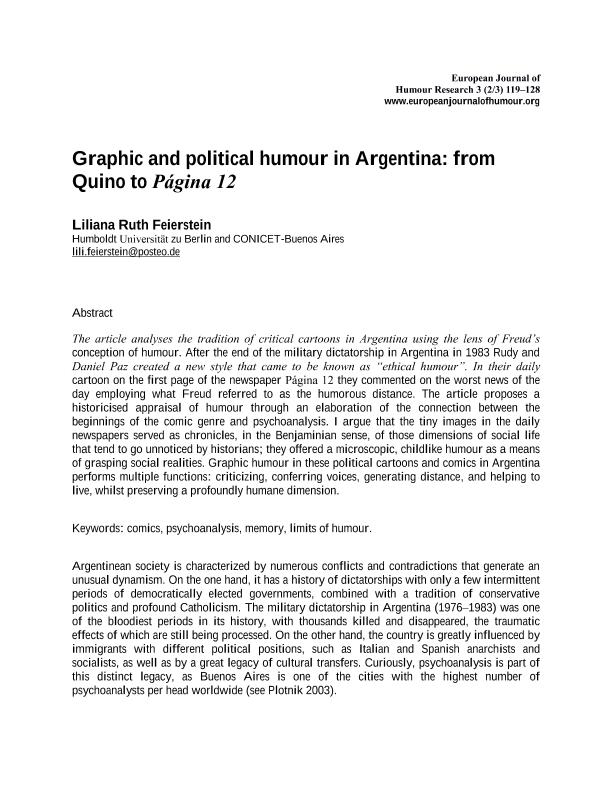Artículo
Graphic and Political Humor in Argentina: From Quino to Página 12
Fecha de publicación:
05/2015
Editorial:
International Society for Humor Studies
Revista:
European Journal for Humor Research
ISSN:
2307-700X
Idioma:
Inglés
Tipo de recurso:
Artículo publicado
Clasificación temática:
Resumen
The article analyses the tradition of critical cartoons in Argentina using the lens of Freud’s conception of humour. After the end of the military dictatorship in Argentina in 1983 Rudy and Daniel Paz created a new style that came to be known as “ethical humour”. In their daily cartoon on the first page of the newspaper Página 12 they commented on the worst news of the day employing what Freud referred to as the humorous distance. The article proposes a historicised appraisal of humour through an elaboration of the connection between the beginnings of the comic genre and psychoanalysis. I argue that the tiny images in the daily newspapers served as chronicles, in the Benjaminian sense, of those dimensions of social life that tend to go unnoticed by historians; they offered a microscopic, childlike humour as a means of grasping social realities. Graphic humour in these political cartoons and comics in Argentina performs multiple functions: criticizing, conferring voices, generating distance, and helping to live, whilst preserving a profoundly humane dimension.
Palabras clave:
Daniel Paz
,
Political Humour
,
Argentina
,
Freud
Archivos asociados
Licencia
Identificadores
Colecciones
Articulos(SEDE CENTRAL)
Articulos de SEDE CENTRAL
Articulos de SEDE CENTRAL
Citación
Feierstein, Liliana Ruth; Graphic and Political Humor in Argentina: From Quino to Página 12; International Society for Humor Studies; European Journal for Humor Research; 3; 2-3; 5-2015; 119-128
Compartir




